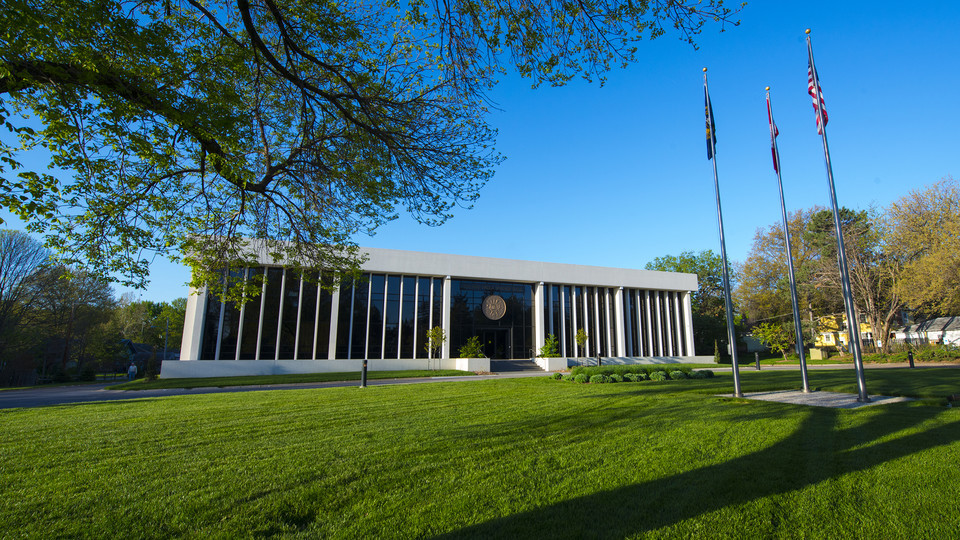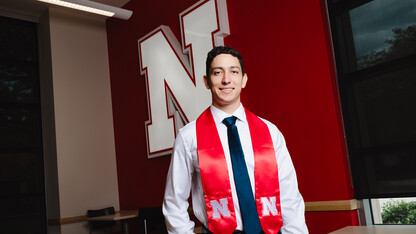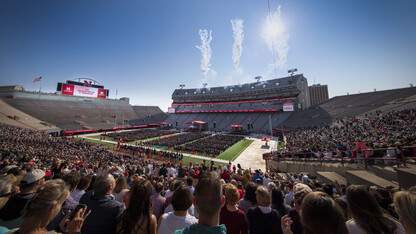· 4 min read
New mileage reimbursement rate takes effect Sept. 1

On Sept. 1, the University of Nebraska system will begin reimbursing employees for mileage using their personal vehicles for work-related travel at a rate of 25 cents per mile, rather than the Internal Revenue Service standard rate of 53.5 cents per mile.
The decreased rate for personal vehicle use matches the average cost for the university to rent a vehicle utilizing private rental or pool vehicles. The Nebraska Department of Administrative Services confirmed in a June 27 letter that the proposed mileage reimbursement rate conforms with applicable statutes and state accounting policies.
This reimbursement rate decrease will save the university system as much as $550,000 per year, and is one of the recommendations of the Budget Response Teams convened by President Hank Bounds and the chancellors to identify reductions in operational costs. The system recently announced a range of changes that will result from the work of the Budget Response Teams, including restructuring in facilities, energy, procurement, human resources and information technology, along with policy and process changes.
More changes will be announced as the systemwide Budget Response Teams’ recommendations are finalized.
Why is this happening?
The system is facing a $49 million budget shortfall, the result of cuts in state funding combined with our rising costs. We’re implementing a variety of changes to structure, policy and process across the system to help manage this challenge. Taken together, the changes will impact virtually all employees in one way or another. While difficult, the reductions we’ve been able to find in operational costs will help us protect, to the greatest extent possible, our highest priorities of affordability and academic quality.
Is reimbursing mileage at a rate lower than the IRS standard rate done by other universities and companies?
Yes, other public universities and many private companies have used mileage reimbursement rates that are less than the IRS standard rate. Prior to a system-wide rate, several university departments have already been reimbursing at a lower rate to save money while providing support to personnel.
Does reimbursing at below the IRS standard rate comply with applicable federal and state statutes and regulations?
Yes. The IRS standard mileage rate is not designed to impose a rate on an employer but is an optional standard rate to be used as a guide by the employee in preparing their individual tax return.
The university system communicated via letter in June with DAS to assure the proposed practice complied with state statutes and state accounting policies. DAS confirmed in writing that reimbursing mileage for use of a personal vehicle at a rate tied to the vehicle fleet operating costs conforms with applicable statutes and state accounting policies.
If I am reimbursed at a rate lower than the IRS rate, can I claim the difference on my income taxes?
Unreimbursed business expenses are deductible, subject to certain limits. Your tax adviser should be consulted in this regard with respect to deductibility and record keeping requirements.
What if I choose to not drive my personal vehicle? What options are there for me and my department?
The system will work with the employee to obtain necessary transportation for work-related needs. If this requires an arrangement to enter into a lease or longer-term contract to obtain such transportation, the employee will be required to use that vehicle for travel during the duration of the arrangement. The actual cost of the vehicle will be borne by the cost center of the employee. Policy prohibits the use of any university vehicle, owned or rented, for personal and commuting purposes.
What if a state/fleet car isn’t available for me?
If state vehicles are unavailable there are rental vehicles available using Enterprise Rent-A-Car with locations throughout Nebraska, which use the Big Ten Contract that includes Collision Damage Waiver and Supplemental Liability Protection.
How will the dollars saved be handled in my department budget?
Departments will be “kept whole” by leaving in their budgets an amount approximating historical mileage multiplied by the new $0.25 rate. The difference determined by applying the new 25-cent rate and the old 53.5-cent IRS standard rate to historical mileage will be removed from department budgets and given to chancellors to help offset state budget cuts.
Does the new rate apply to non-university personnel, like consultants and candidates who are visiting campus?
Yes. Unless there is a contract or agreement with the outside party that specifies that we will reimburse mileage at the IRS rate, all travelers will be reimbursed according to systemwide policy. Departments are encouraged to make travel arrangements on behalf of non-university personnel to avoid unnecessary expenses.
Does the new rate apply even if the source of funds for reimbursement is something other than state-aided dollars, like auxiliary or research dollars?
Yes. The new reimbursement rate is 25 cents.
What if I travel before the new rate goes into effect on Sept. 1, but don’t submit my reimbursement until after Sept. 1?
SAP reflects reimbursements based on the date of travel, not the date of data entry. So employees who travel before Sept. 1 will still be reimbursed at the IRS rate, even if they do not submit a reimbursement until after Sept. 1.







